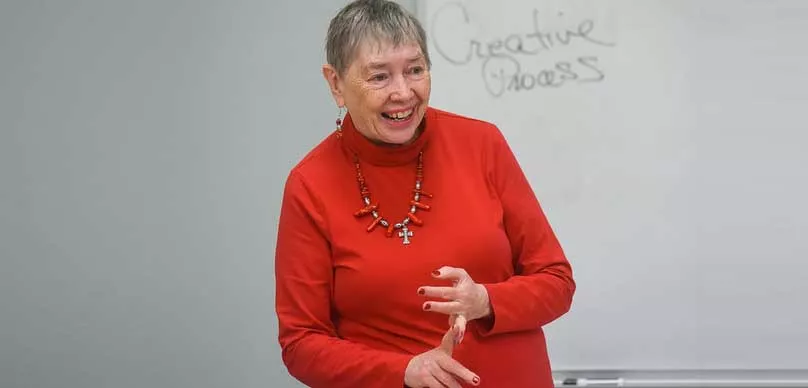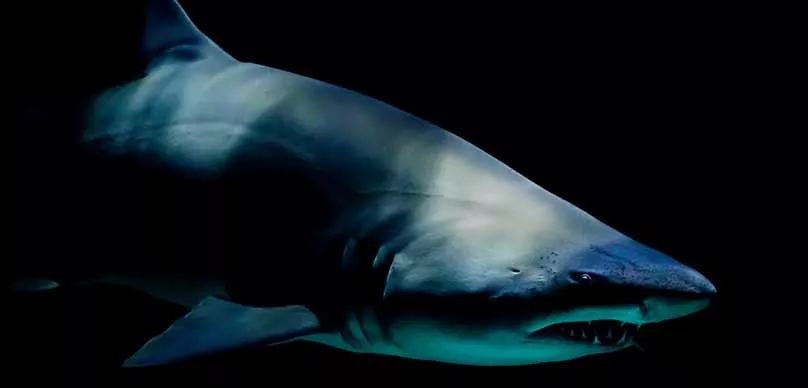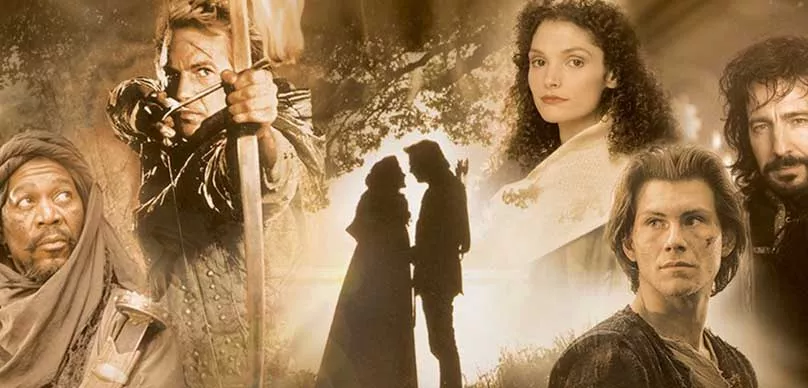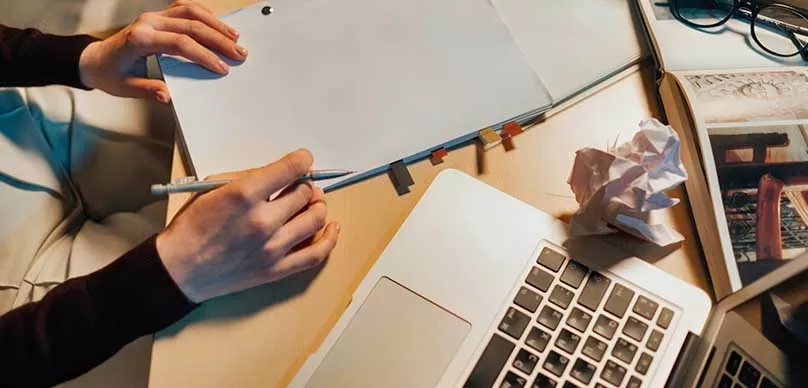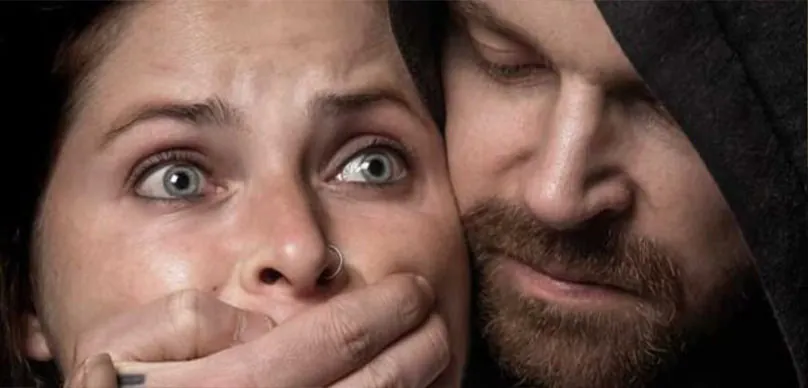Right-click here to download the MP3
Today I wanted to discuss the concept of “Fake it till you make it. There are a lot of misconceptions about how to do it properly when you should or shouldn’t do and if it’s ever a good idea. I can tell you that without faking it till you make it I wouldn’t have gotten anywhere in the film business. Without creating opportunities for yourself it can be impossible to get a leg up in the business.
“You must be the person you have never had the courage to be. Gradually, you will discover that you are that person, but until you can see this clearly, you must pretend and invent.”
―
I discuss the proper way to fake it till you make it without hurting yourself, your reputation or anyone around you. There is an art to it, trust me. I tell Fake it till you make it stories from my own career, Oscar winners and the mythical story on how Steven Speilberg got his start. Guess what, he faked it too. This will be an eye-opening episode. Still back and enjoy.
If you find value in this episode please share it with someone who needs to hear it.
Alex Ferrari 0:08
Now today's episode is about faking it to you make it. And I've kind of touched upon this in the in the past on the podcast. But I really wanted to kind of go into the weeds a little bit today with you guys on it because there's a lot of misconceptions about how to do it, when to do it, when to do it, right. I know a lot of people out there say it's a horrible piece of advice, don't ever fake it till you make it, you can really do a lot of damage, all this kind of stuff. And I want to kind of set the record straight. And also just kind of give you a kind of a small blueprint on how to do it properly. And also give you some examples of people in our business as well as my own experiences. By faking it till you make it Now, why would you fake it till you make it, you fake it because you don't have opportunities. Because you don't have opportunities or access to things that you just wouldn't be able to get any other way. And I'll give you a perfect example. My editorial reel. When I was first coming up, I got a job working at the largest production company in the southeast at the time. And we did a lot of big commercials and, and music videos and things like that. And I was just a young kid right out of school, I must have been 21 I think at the time 20 or something like that. And I didn't have any other access to another any other opportunities other than just basically being a tape dubber, and or pa on the weekends for this production company. Then slowly but surely, I started learning the editing system, the avid, which is right next door to me. And little by little I learned how to edit and I was really excited about it. And I found I had a good talent for editing. But the kind of footage that I had access to made it look like you know, I was kind of what I was a starting out editor. Now my skill set was much far beyond what the access of footage that I had, or what my reel showed. And that's a mistake so many young editors and young filmmakers in general make is that they, they put out exactly what they have access to. So they go out and shoot shorts on the weekends or, you know, film, you know, film some fake commercials with or something with their friends. And you can just tell it's not high end is not really, you know, fully, you know, seasoned or polished. And when you go out for a job, you lose out because other editors are more experienced. And they have better reels, they've worked with bigger clients and bigger companies. And you know, people want to feel safe when they're hiring people. Now, I know for a fact that I saw a lot of editors come in and out of my production office, and the ones that had those kind of reels never saw the light of day, regardless of how talented they might have been. So one day an opportunity arose. We had just acquired about four or five different directors over from Europe. And a ton of footage came over from that from that by or that our acquisition of directors for representation by my production company. So saw these just wealth of raw footage and commercials and logos and music and all this kind of stuff. So I decided without anyone's permission, without anyone's knowing. I just started grabbing that footage and digitizing it into the avid. And I started seeing commercials. So I saw raw footage dailies for these huge, multi million dollar commercials. But they were all European. So it kind of was amazing because it wasn't like I was taking David Fincher his Nike commercial and re editing it and saying, Hey, I was the editor on this. I was taking European footage that nobody in the states really had seen before. But it was super high quality stuff. So I just started to put together commercials fake spec commercials, we like to call them speculation commercials. So I would start editing these commercials and some of them were like, you know, sports drinks and shoes, you know, getting those sneakers and other things like that really big brands, but European again. So what I started to do is just take that footage, edit together, and I would slap a Nike logo at the end of it. And it's like, hey, yeah, I did. That's a Nike commercial. And I would grab some amazing music that was just awesome. And just put it in there and just edited man and I just went for it. And it was a different time. There was no internet. There was internet but there was no demo reels you couldn't upload anything. So everything was still on VHS tapes at the time VHS and three quarter inch tape DVDs weren't even around at that moment in time. So what I did is I started putting together a demo reel and I put together a bunch of reels, a bunch of commercials, maybe like five or six commercials, all of them with raw footage from these these commercials. And I just said Hey, this is my demo reel. And then I went out into the marketplace as a freelance editor based on that demo reel. And if anyone ever asked me, they asked me the question, you know, did you, you know, who did you work for Mike, I wouldn't lie, I would just say, Oh, those are spec commercials. But the talent was seen. And then all of a sudden, the quality that I was able to grab from all that kind of footage gave me a tremendous, it gave me a leg up in the marketplace. And there was just nobody in my area down in Miami at the time, that was doing that kind of work. So all of a sudden, I mean, literally, the very first interview I did, I got a job as a freelancer and started doing commercials for, you know, the local Major League Baseball team, the Marlins, and all this kind of stuff. Why because of this speculation commercial, this fake commercial, real that I put together, now I did all the work. I did everything myself, so I was capable of doing it. And that's the big key here, guys. I was faking it till I made it. But the thing was, I was capable with the skill set at that time, to be able to fake it, I wasn't faking something that I had no idea I was ever going to be able to do, or, you know, promising something to this client that I wasn't able to bring to the table. And that's where people get caught up. And that's where mistakes are made. If I would have literally stolen edited commercials by some other editor somewhere else, and I was barely, you know, weren't being able to run around or work in avid at that time and said yeah, yeah, I edited those edited those and then you get put in front of a client. That's when your entire career locally, you know, I would have I would have never been hired again, the word would have gotten out like this, Alex good. Is a BS er, and he's not good. And done, how would my career would have been done. So you see the difference between fake it till you make it and then fake it till you make it I have no idea how I'm going to get there. I already knew that I could do the job. I just needed just a little something to kind of crack that door open. It was started as the beginning of the hustle, if you will. And that was a great great example of and by the way I did not I barely updated my reel those those spots stayed on my demo reel probably for about five years. Like I did not remove them because they did so well. For me people still you know called me on it. Even after I'd done probably four or 500 commercials and promos and things over the years, I would slowly replace them little by little but I love them so much and they did so well for me. So now all of a sudden, I had a reel of a lot of I had a demo reel of a bunch of Reel spots that I had been working on and then a couple of speculation spots so no one even asked me anymore after a while because I already had the credibility for it. And it's just a way that I got my way up and I started working as an editor and I was making really really insane money back in the mid 90s because of fake it till you make it another great example is Robert Rodriguez now you know guys I love talking about Robert on the show I'm big fan of Robert and, and everything he's done, but early in his career, what he did with El Mariachi, he did a little bit of element of fake it till you make it which was this he was able to take a existing trailer. So he took a movie trailer for whatever big movie there was at the time. And that does typically at that time that didn't have any voiceover. So all it was was just music and action. So we took the music track off of the VHS basically literally just dumped it off of a VHS and in that track, you would hear the Yurok time says this is amazing. Oh blow your butt off. Roger Ebert gives it four stars and all these kind of review style reviews on on the track. So you have this driving crazy music with these, you know, professional voice over guy giving amazing reviews. And he caught a trailer for El Mariachi using that track. And he put it out on his on his VHS with us his short film and showed it to the potential agent and other people. And people went crazy for it. Why? Because it created a different kind of light to El Mariachi. You know mariachi was very low budget, indie film, you know, but he wanted to create this kind of impression or image of a big blockbuster action movie. And by fake it till you make it he did. And even if people know even professionals who watched that trailer knew that that was not real that that those reviews weren't real. It didn't matter. They are that that already clicked into their head and they already started associating it with a big budget blockbuster. But the visuals that he was able to create an El Mariachi, were able to hold the weight of what he was trying to do. So that's another great example of fake it till you make it. Now, there's another story about an Academy Award winning producer by the name of Brian Grazer. That's Ron Howard's producing partner and co founder of imagine entertainment. And when he was starting out, he actually just got an internship at Warner Brothers working in the business affairs department, basically just running mail, you know, he was a runner. What he did was, it was very ingenious back in the day, he started calling all around town saying Hi, I'm Brian Grazer. I work in the business affairs department at Warner Brothers. And he started pitching ideas, he started to take meetings around town because he and anyone called at the Business Affairs Department, he would be there to pick up. And it was an ingenious way because it opened up doors that wouldn't have been open to him. So by the time they caught on to this situation, I think he was there a year before he was fired. But by then he had already sold two ideas to NBC for $5,000 each, and he got his career started. Now, why would you do that? If you you know, if you're starting out, because Brian didn't have any other app access, he didn't have any other opportunities presented to him. If he would have called up somebody said, Hey, I'm the mail boy, over at this Warner Brothers business affairs, they would have hung up the phone on him. So it's it was, it was a little bit of a stretch in that wasn't a stretch it was it was a full lie. But the way you presented it, gave him the opportunities that gave that got him to where he is today. Another very, very, very famous story. That's actually mythology. This point, I don't even know if it's real or not, but I'm going to tell it anyway, is Steven Spielberg. The way the story goes, is that Steven Spielberg got to LA and he went on the Universal Studios, backlot ride, and during the ride, he jumped out, he jumped out when they were in the in the back studio somewhere. So then he would, he ran somewhere and found an empty office somewhere on the lot. And he set up shop, he literally had a phone there. He he would come every day, and how he would set himself up. Like back in the day, obviously, the security was a little bit more lacks in the 70s, early 70s, late 60s, early 70s. So he he would just wave, he would dress the part. So he would dress with a suit. And and he would come with a briefcase. And nobody would question him, he would just wave to the security guard and like, hey, Henry, and he would just walk right by and he did that for months. And while he was there, he started calling around town, making appointments, talking to people and trying to make deals. While he was at Universal. It's like, yeah, I'm at the universal lot and all this kind of stuff. So it's similar to the Brian Grazer story, but he that's how he got his start. And you know, he had it, he had a short film, and he had directed a bunch of stuff already. And you know, what I mean bunch of stuff, short films. And he that was the way he got his opportunity. And then Sid sheinberg discovered him and gave him a gave him a contract a seven year contract for a think a 20 year old or 22 year old, a 23 year old or something like that, I think was a 20 year old actually, because he had a seven year TV contract with universal. And he was able to direct and he was the youngest director ever to get that. But it all started off because he was faking it till he made it. Now did Spielberg have the goods, he had a lot of goods, I'm sure at that point. But things that he didn't know, he knew he would have to learn before he before the time was up. And I have another story. Another great example of that with myself while I was editing and you know, in my early career, I was offered a job at a big agency a freelance job at a large marketing agency, and they wanted to bring in an avid and some visual effects machines and things like that to do this big campaign. This is when you know, campaigns were really expensive, even at the lower levels. And they had the money like money was just flying with the 90s what are you gonna do but I was I was brought in and they wanted to know if I could do some high end visual effects for the you know, for these commercials, which was I think it was a I think it was like a hockey team mixed with the local car dealership, but it was a big budget. It was a big budget and a big sponsorship with the Florida Panthers if I remember correctly, and I said absolutely not a problem. And they were, it was something that would have to do an after effects Adobe After Effects. And at that, at that time in my career, I knew a little bit about it, but the stuff they were asking for was pretty high end. So I said yes. And then started to learn as much as humanly possible. And thank God, that back then, at those times, it took forever for anything to get done. So I had just hours and days and some actually weeks to teach myself the tools needed for that job. Now, I really stretched the fake it till you make it idea back then, but I was able to do it. And it worked. And the client was very happy, and I was able to work with them more and more in the future. But that was a great example of fake it till you make it. Now, I want to be very clear with this whole concept of fake it till you make it. When you are doing this, what you're doing is you're leading others to believe that without a shadow of a doubt, without question, find the answer. Even though you don't have it right now, you will become the person for the job, even though you aren't that person, at the moment they're hiring you. That is the difference between fake it till you make it, you are leading people to believe that you're able to not only do that job, but that you are guaranteeing them that before the time comes, you will educate yourself and get what needs to be done, done. And that's where people fail. And that's where people make mistakes, by faking it till you make it when you lie to somebody about your capabilities. And then don't do the work to raise your capabilities up to the job or the task at hand. That is where this blows up in your face. So be very, very careful that you are in very much inside of you know that you're going to be able to do that when I was able to put my spec demo reel out there with, you know, presenting myself as I was a big editor working with these big clients, I already knew that I was going to be able to bring the goods as an editor, I just needed a leg up, I needed something to open the doors for me. And that's what that did for me. And I did that throughout my career, including, I mean, it's just it's constant, you always fake it till you make it wherever you are in your career, wherever you are in your life. You know, you always have to do stuff like that, to just project a certain image out there, have something that you're able to do. And if you don't know how to do it at that moment, you need to learn how to do it and make sure you you know, comply to whatever you told people that you are going to do. Anyone can fake it. And in many ways faking it is how you get the door open. The question is whether you're taking the time to learn and grow as well. So when the door does open, you're ready, and you've made it you're ready to go. Now I hope this episode help you guys out a little bit inspired you a little bit about faking it till you make it because I know a lot of, of the members of the tribe out there are not in LA, and they're out somewhere else in the world. In a small, a smaller country, smaller markets, even here in the US and you know, smaller economies, smart, smaller cities that don't have a lot to do with the film industry. And the opportunities are more scarce. And the concept of faking it till you make it does help dramatically in getting yourself out there and getting yourself opportunities that wouldn't be there before. Great ways of faking it till you make it is creating a website, presenting yourself as a professional, putting yourself out there making yourself look like you've already there, that you're already doing what you're supposed to be doing, and that you're already there and you're just another client. That's what so many people do. But you've got to make sure you bring the goods with you, you've got to make sure that you have the skills to back up that that belief that that image that you're putting out there, if there's an actor that is working is trying to get themselves out there into the world. And let's say he or she is living in a studio apartment, somewhere in Van Nuys here in California. But when they go out at night, or they go to different mixers or events, they're not dressed like, you know, a broke actor. They're dressed differently. They have different, you know, clothes on, they have different personas on and they start putting themselves out there in different ways in different events and things. So when people see them, they're like, Hey, you look like someone who should be an actor or Hey, I'm looking for an actor. here's, here's my card, give me a call. Because of the the image that they're putting out there. They're not dressed like they are at home in shorts and T shirts. Looking broke, like we all did at the beginning, they're putting out an image. And that image is a fake it till you make it kind of image. So you have to understand that. And always dress for success wherever you go in life. Always dress the part, always act the part, even though you might not be doing it right now, you should be acting the part and feeling the part and looking the part. I'm not saying show up to please, I gotta say this, I gotta say this. If you're a director, and you show up to the set of any set, with the word director on your T shirt on the front or the back, you should be taken out unbeaten I'm sorry, I'm sorry. I'm sorry. I had to say it. That that's just so ridiculous. No professional director will ever do that same thing goes for cinematographer. Same thing goes for sound guy. Same thing goes for anybody, no professional comes out with a shirt that says especially at the higher, you know, you know, the director, the producer, things like that. So don't do it. So when you're, when I'm saying project yourselves, as someone who's already doing it, that's what you need to do. But make sure you bring the goods or if you don't have the goods or you don't have the knowledge at that moment, educate yourself quickly on that process and get the job done. I hope this episode helped out a little bit in this whole concept of fake it till you make it and it's been instrumental in my life in instrumental in so many people's lives in this business. I can't even tell you every big director that you've ever probably heard of has done an element or two have fake it till you make it. So thank you guys for listening. If you haven't already, please head over to shootingforthemob.com it is actually officially going to be released tomorrow, April 2. So it is finally the release of shooting for the mob. So I'm going to put out a special episode. Tomorrow just talking about that and announcing that So please, this is what I need you guys to do. Head over to shootingforthemob.com buy the book on Tuesday morning, as soon as you can, because I need to get as many orders as possible on one or two, you know few hours. And that will boost me up into the number one spot in Amazon and that would help sales dramatically and help the book get out there. And so on guys, so I need your help. So please head over to shootingforthemob.com that takes you straight to Amazon and you can buy the book there. Please read it. And if you have read the book, and I know a bunch of you have, I need you to leave a review ASAP. But I'll talk to you more about all of this stuff tomorrow and a special kind of side episode of indie film hustle so I appreciate it guys, thank you again. So so much as always keep that also going. Keep that dream alive. And I'll talk to you soon.
Sign up to receive email updates
Enter your name and email address below and I'll send you periodic updates about the podcast.
YOUTUBE VIDEO
LINKS
- Alex Ferrari’s Shooting for the Mob Book- Amazon Link
- [easyazon_link identifier=”B0048LVDHG” locale=”US” tag=”whatisbroke-20″]El Mariachi[/easyazon_link]
SPONSORS
- Bulletproof Script Coverage – Get Your Screenplay Read by Hollywood Professionals
- Audible – Get a Free Filmmaking or Screenwriting Audiobook
- Rev.com – $1.25 Closed Captions for Indie Filmmakers – Rev ($10 Off Your First Order)














